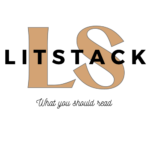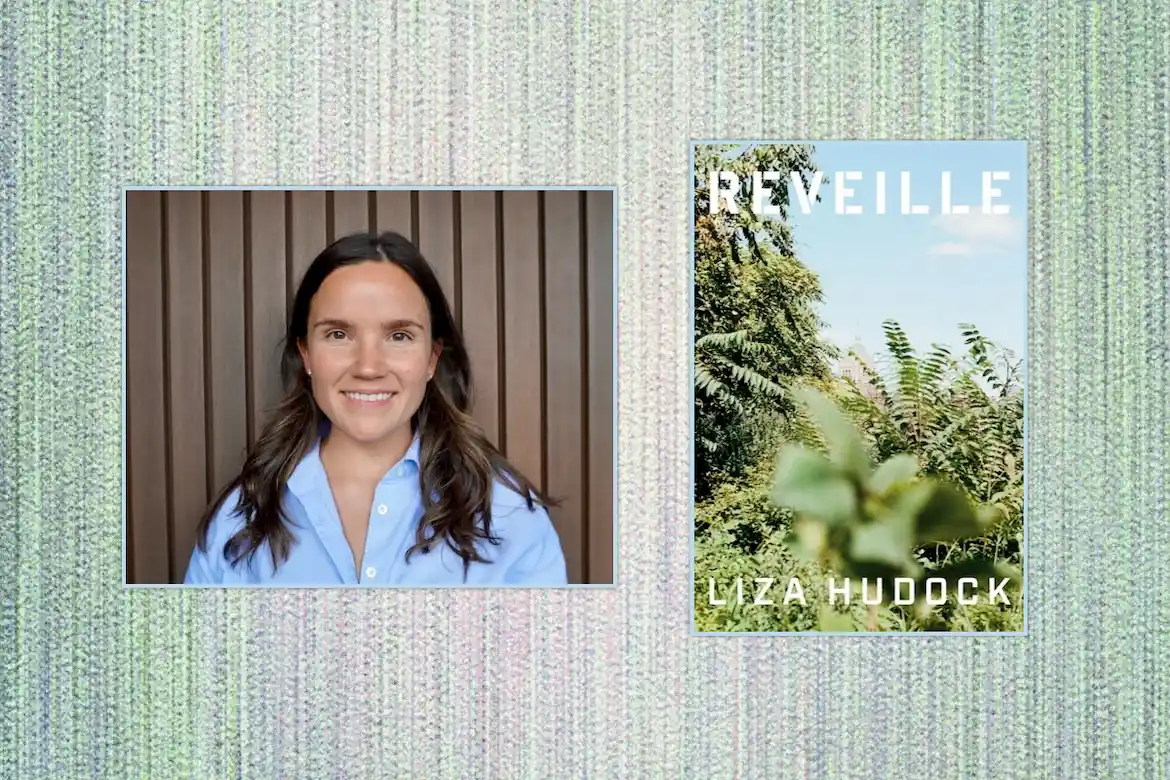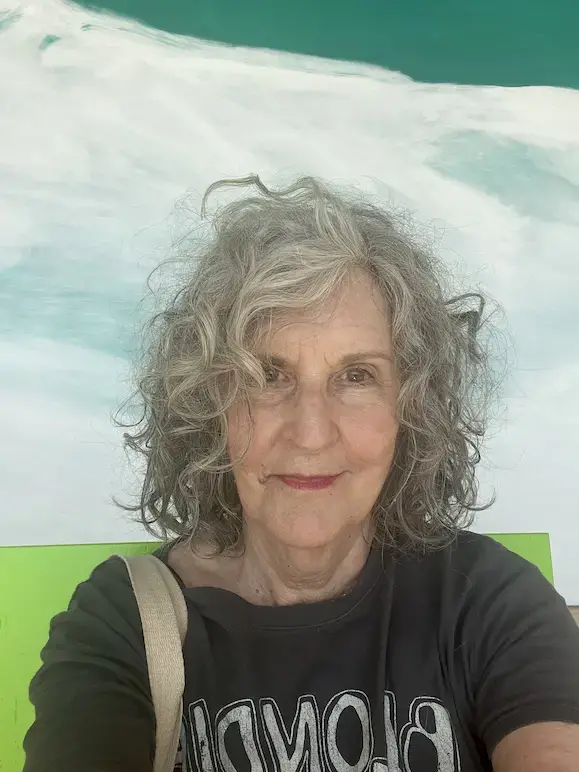You can buy the books we recommend on Bookshop on our list of LitStack Recs.

In This LitStack Review of Reveille by Liza Hudock
On Writing Through Loss And Pain—And Getting Her First Book Published Right Out Of Grad School. An Interview With Liza Hudock
A veteran of the U.S. Coast Guard, Liza Hudock had read a good bit of poetry but considered herself a novice at writing when she entered graduate school. Given that both her mother and sister died shortly after, it’s a miracle Hudock was able to finish the MFA program, let alone write cogent poems about the experience of such loss. In a rare trajectory, her manuscript was accepted for publication a mere month after she graduated. Just as Reveille achieves a healing journey, so has the poet. While the book was still in production Hudock gave birth to her first child, who is now a year old. Full disclosure, we were classmates at the Program for Writers at Warren Wilson College, though we started and ended at different times.
~Karen Hildebrand


I Hate To Say Poetry Saved Me, But It Kind Of Did.
I hate to say poetry saved me, but it kind of did.
KH: Though we overlapped at Warren Wilson, I feel like I’m really just now meeting you on the pages of Reveille. Your speaker is plain-spoken, yet also very articulate. And you have a wonderful music in your lines. That combination makes the poems very accessible.
LH: The voice in Reveille, I think, is a natural voice for me. I had not written much before applying for the program. I had read a lot of what I guess you would call symbolist poets—and was maybe copying them a little. The voice was less natural.
KH: The defining reason for Reveille is the loss of your mother and sister. How long ago did those losses occur? I think you’re writing very close to the events, and I’m wondering what that was like, because that seems difficult to do.
LH: Those losses occurred while I was at Warren Wilson, so I was writing about them in real time. Every semester, I thought I should just stop studying poetry and take a break. But I was also dependent on this stipend I received for being a student on the GI Bill. So I was getting money every month at a time when shit was really hitting the fan and we needed that money. I was so focused on my family, it was all I could write about. Maybe if I had decided to write about grief in, like, ten years, I could come up with something less close to the autobiographical details. But that’s not how it happened.
KH: I think that immediacy is a strength of the poems. I can feel you working through the different aspects of grief. It feels very fresh.
LH: I hate to say poetry saved me, but it kind of did. Talking, thinking, and articulating before you’re maybe ready to. Thinking and writing about things that are painful. Sometimes I could barely turn anything in.


You Don’t Have To Reinvent The Wheel Every Day.
You don’t have to reinvent the wheel every day.
KH: I read an interview where you talked about your revision process and I was struck with how clearly you were able to analyze your own work. You were looking at it like a teacher would.
LH: I would say that only happens when a poem is almost done, and feels like it has nothing to do with me. Then I can know what works and what doesn’t, how to be a little bit ruthless. Like when you have to throw away a line that you really like.
KH: You also mentioned, in that interview, Brigit Pegeen Kelly as a model for one of your poems. I can sense her influence also in the way that so many animals appear in this collection. Do you live around animals, or did you grow up around them?
LH: You know, what’s weird is that I don’t. Unless you count squirrels and dogs. But, the time I have spent around animals has always felt really special and all-absorbing. Like, even at just a zoo. Or on a field trip to a farm in elementary school.
KH: There’s a lot of nature description too—a lot of plant life.
LH: The last real job I had is that I was in the Coast Guard. I was stationed in Alaska. There’s a state park in the city of Detroit called Belle Isle, and it has a Coast Guard station on it. I was stationed there for a little while, too. That work gave me ample opportunity to look at nature because it’s a lot of hurry up and wait. You know, just waiting for an alarm to go off. It was, like, a perfect job for my temperament, although the misogyny is about as bad as you would expect, so that’s kind of exhausting and demoralizing. But the actual nature of the work was fine and perfect. I kind of love jobs where there’s a right way to do everything. You don’t have to reinvent the wheel every day. I totally don’t mind following orders, because then I have my brain and my creativity in my little imaginary palace to myself.


…You Can Have These Conversations With Someone Who’s No Longer With Us.
…you can have these conversations with someone who’s no longer with us.
KH: There’s one poem, “Grizzly,” where the animal is the subject of the poem. It’s not really a long poem because the lines and stanzas are short, and there’s a lot of white space, but it takes up three pages very near the end of the book. So it occupies significant acreage. I’m taken with the stanza, “Her odor hangs/ like a note from a nail / above the empty, / recent bed.” At what point did you write that poem?
LH: That is something that had been knocking around before I applied to Warren Wilson. It came out of a bunch of short, imagistic—maybe I would even just call them notes—that I had written about grizzly bear encounters. It didn’t occur to me to put them together until the book was almost ready.
KH: In a few poems, your speaker has a conversation in her head where she’s talking directly to an “other.” “Funeral for a Cook,” “Reveille,” “After the Gold Leaves from Polina.” It’s very interior. You don’t give us any background details. You just go right into it, and so it feels very authentic.
LH: I think the word “interior” you’re using is kind of perfect, because those are poems that are directed towards my sister after she had passed away. So there’s no way for her to answer. I don’t know if you have any siblings, but you can kind of imagine how your siblings would respond to pretty much any given statement, so you can have these conversations with someone who’s no longer with us. I don’t know why I didn’t explain the relationship in the poems. Maybe partly because, as ruthless and critical as I’m able to get towards the end of writing a poem, I don’t actually expect any of them to see the light of day.


I Riff Off Of Cliches A Lot By Accident.
I riff off of cliches a lot by accident.
KH: I think it’s a really good instinct. If you were really talking to that person, you wouldn’t explain all the background. They know it already. What are your favorite poems in the book?
LH: I love “Grizzly” because it’s weird, and I’m kind of mystified by it. I like “Behold the Shoes.” I wrote it in two drafts. That was cathartic.
KH: One of my favorites is “On Closure,” where you riff on the phrase, “born with a silver spoon in her mouth.” That last line: “When I was given a spoon, and my mouth comprehended it perfectly.”
LH: I riff off of cliches a lot by accident. Kay Ryan does that, too. She has this great poem, “Home to Roost.” “On Closure” came to me out of order. Before any of this ever happened.
KH: Were there poems that were particularly tough to write? Given that all of it was.
LH: Finishing any one poem required so much sustained focus and honesty. I think any of them can get to 80% without causing too much anguish. But to really finish one, you have to think about what you’re looking at and how it’s making you feel.
KH: What’s on your reading stack right now?
LH: I just got Light Me Down: the New & Collected Poems of Jean Valentine from the library. Hadn’t read a word of her before last night. I watched an interview with Gwendolyn Brooks, and she said P’bitek Okot is her favorite poet. So it’s like, you gotta read Gwendolyn’s favorites. My favorite journal right now is British: Poetry Nation Review. I saw a video of Thomas McCarthy reading a poem and ordered his book, Plentitude. Somehow in that process, I realized that his publisher runs a journal. It’s one of those weird internet rabbit holes that turns out to be really fruitful.
<End>
Upcoming Reading Dates for Liza Hudock and Reveille:
Jan 10, 2026: Bull City Reading Series at the Mettlesome Theatre, Durham, North Carolina
Feb 11, 2026: Groiler Poetry Book Shop, Cambridge, Massachusetts. With Weijia Pan and Selma Asotić.
Feb 27, 2026: Seminary Co-op, Chicago, Illinois. With John Tipton.


About Liza Hudock

Liza Hudock was born in Detroit, Michigan. After many moves, Liza resides there now. From 2017-2021, Liza was a Boatswain’s Mate in the U.S. Coast Guard. In 2024, Liza graduated from the Program for Writers at Warren Wilson College. Reveille is Liza Hudock’s first collection of poems.
You can connect with Liza Hudock on their website, and on Instagram.


Other Poetry Titles LitStack Recommends

Other LitStack Resources
Be sure and look at our other LitStack Reviews for recommendations on books you should read, including reviews by Lewis Buzbee, Lauren Alwan, Allie Coker, Rylie Fong, and Sharon Browning.

Comment Using Emote
You can find and buy the books we recommend at the LitStack Bookshop on our list of LitStack Recs.

As a Bookshop, Malaprop’s, BAM, Barnes & Noble, Audiobooks.com, Amazon, and Envato affiliate, LitStack may earn a commission at no cost to you when you purchase products through our affiliate links.






